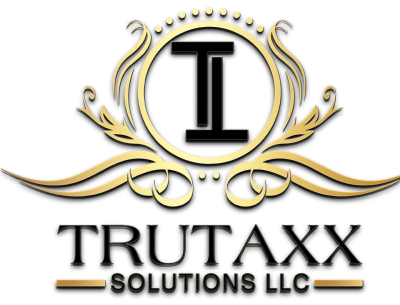Choosing the right business structure is one of the most critical decisions for entrepreneurs and small business owners. The structure you select not only impacts your legal liability and operational flexibility but also plays a significant role in determining your tax obligations. Understanding the tax implications of each entity type can help you maximize deductions, minimize liabilities, and improve your overall financial health.
In this guide, we’ll explore different business structures and how they can impact your taxes, helping you make an informed decision for your company’s future.
Understanding Business Structures and Their Tax Implications
The IRS recognizes several types of business entities, each with its own tax benefits and drawbacks. Let’s break down the most common structures:
1. Sole Proprietorship
A sole proprietorship is the simplest and most common business structure for small businesses.
- Tax Treatment: Business income is reported on the owner’s personal tax return (Schedule C, Form 1040).
- Pros: Easy to set up, minimal paperwork, direct control over the business.
- Cons: No liability protection, self-employment taxes apply (15.3% for Social Security and Medicare).
- Best For: Freelancers, consultants, and small business owners with minimal risk.
2. Partnership
Partnerships involve two or more people sharing ownership of a business. There are two primary types: General Partnerships (GPs) and Limited Partnerships (LPs).
- Tax Treatment: Partnerships file an informational tax return (Form 1065), but profits pass through to partners, who report them on their personal tax returns.
- Pros: Pass-through taxation avoids double taxation, flexible management.
- Cons: Partners are personally liable for debts (unless it’s an LP), potential conflicts between partners.
- Best For: Small businesses with multiple owners looking for pass-through taxation.
3. Limited Liability Company (LLC)
An LLC offers flexibility in taxation while providing liability protection.
- Tax Treatment: By default, an LLC is taxed as a sole proprietorship (if single-member) or a partnership (if multi-member). However, it can elect to be taxed as an S Corporation or C Corporation for additional tax benefits.
- Pros: Limited liability, flexible taxation options, fewer compliance requirements than corporations.
- Cons: Self-employment taxes apply unless electing S-Corp status, varying state fees and regulations.
- Best For: Small to medium-sized businesses seeking liability protection with pass-through taxation benefits.
4. S Corporation (S-Corp)
An S Corporation provides liability protection while offering tax advantages by avoiding self-employment taxes on some income.
- Tax Treatment: Pass-through taxation; shareholders report income on personal tax returns, but the company itself does not pay federal income taxes.
- Pros: Avoids double taxation, reduces self-employment tax liability for owners taking a “reasonable salary.”
- Cons: Stricter IRS requirements, limited to 100 shareholders, must be U.S. citizens or residents.
- Best For: Small business owners earning enough profit to benefit from self-employment tax savings.
5. C Corporation (C-Corp)
A C Corporation is a separate legal entity from its owners, which means it pays taxes on its profits.
- Tax Treatment: Subject to corporate income tax (21% federal rate as of 2024). Profits distributed as dividends are taxed again at the individual level.
- Pros: Unlimited growth potential (can issue stock), strong liability protection, more deductible benefits for employees.
- Cons: Double taxation, more regulatory requirements and paperwork.
- Best For: Larger businesses or startups planning to reinvest profits or attract investors.
How to Choose the Right Structure for Tax Savings
When selecting the best business structure for tax savings, consider the following:
1. Income and Profitability
- If your business is generating significant profit, electing S-Corp status can help reduce self-employment taxes.
- If you plan to reinvest earnings, a C-Corp might be beneficial due to its lower corporate tax rate.
2. Liability Protection
- If you’re concerned about personal liability, an LLC, S-Corp, or C-Corp can provide protection.
- Sole proprietorships and general partnerships do not offer liability protection, putting personal assets at risk.
3. Compliance and Administrative Burden
- Sole proprietorships and partnerships have the least administrative burden.
- LLCs are relatively easy to manage but require state-specific compliance.
- S-Corps and C-Corps have more regulations, requiring regular filings and formalities.
4. Growth and Long-Term Plans
- If you plan to attract investors or go public, a C-Corp is the preferred structure.
- If you want flexibility and tax benefits, an LLC or S-Corp might be a better fit.
Get Expert Guidance from TruTaxx Solutions
Choosing the right business structure can significantly impact your tax savings and financial future. At TruTaxx Solutions, we specialize in helping business owners navigate tax complexities, ensuring they select the best structure for their needs.
💼 Book a consultation today and let our experts guide you toward maximizing tax benefits and minimizing liabilities.
